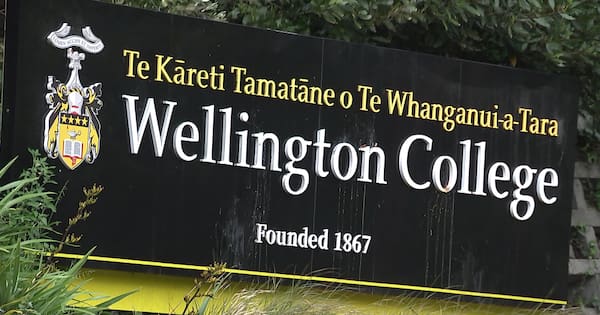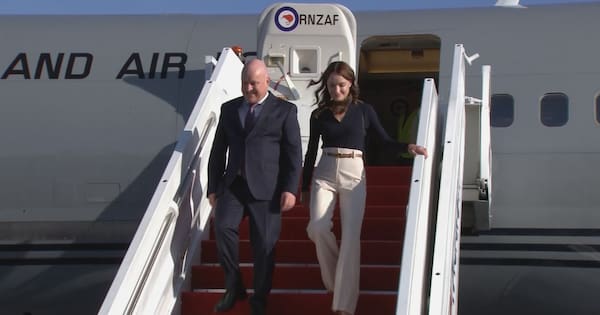A lack of young Māori voices at one of the world’s biggest conferences on climate change has led to a selection of 10 rangatahi to join Aotearoa New Zealand’s delegation heading to the UN Climate Change Conference for the first time.
The rangatahi, aged between 18 and 30, will represent iwi from across the motu on behalf of the National Iwi Chairs Forum (NICF). They will present and participate in discussions at the global COP30 gathering in Brazil.
The group held their first in-person wānanga last week, hosted by Ngāti Whātua Ōrākei.
Kyla Campbell-Kamariera (Te Rarawa, Te Aupōuri, Taranaki tūturu) said she was humbled to be put forward by her iwi, Te Rarawa. She said water is a huge focus for her and her people.
She is the chairwoman of Mātihetihe Marae in Mitimiti, Northland, where they have just secured government funding to upgrade their decades-old water reticulation system to guarantee safe and reliable drinking water to its small community.
Of the wider region, she said the health of the Hokianga Harbour and its waterways are important and are often impacted by farm runoffs and household water waste.
“Me pehea mātou e whakaora i taua tupuna moana hei whakaora i te tangata hoki? He nui ngā hononga ā-wairua, ā-kiko, ā-Māori nei ki tō mātou taiao nō reira ki a mātou o Hokianga, ko te oranga o te wai ko te oranga o te tangata hoki.”
(“How do we care for our ancestral harbour so that it sustains us too? We are connected in many ways, spiritually, physically, and as Māori to our environment so for those of us from Hokianga, the health of our water is tied to the health of us as people too.”)
She said as a group they are asking themselves what difference they can bring to the table at COP.
“He aha te kōrero, te karere mai i a mātou ngā rangatahi o nāianei kia whakawhirinakihia ki ngā kōrero i puta i ngā rā o mua, i ngā rā kei te heke mai hoki?”
(“What do we want to say or what message do we as rangatahi of today have to add to what’s already been put on the table, and have yet to come?”)
Taane Aruka Te Aho (Ngāti Korokī Kahukura, Ngāti Māhuta, Te Whānau a Apanui, Ngāti Porou, Ngāti Kahungunu) said they have a lot of work ahead of them to meet the expectations of their iwi.
“He haepapa nui tēnei ki te kawe i ngā kōrero, ki te kawe i ngā mātauranga ā tērā iwi, ā tērā iwi, ā, ka whakahoki mai ki tā mātou kāinga kia horopa ēnei mātauranga, kia mahia ngā mahi mō te taiao te take.”
(“It’s a big responsibility to take our message, the collective knowledge of our respective iwi, and to bring home [new knowledge] to share and act on for the wellbeing of the environment.”)

The rangatahi group has been given the name of Te Kāhu Pōkere (the black hawk), a significant symbol of kaitiakitanga for Ngāti Whātua Ōrākei. Te Aho said their name reflects the role they are taking on heading to COP30.
“Koinā tā mātou mahi i tēnei rā, ko te whakatū i ngā tūāpapa i tā mātou haerenga, ka mutu, ki te wānanga tahi, ki te mahi tahi, ko te manako kia kimi ngā rongoā mō tātou te iwi Māori.”
(“That’s what we’re doing today, establishing the focus of our trip so we can discuss and work together to hopefully find solutions for our people.”)
Former government minister and Labour MP Kiritapu Allan is the lead technician for NICF’s climate change arm, Pou Take Āhuarangi.
Allan said the selection process for the rangatahi delegation was intense with 60 applicants, each supported by their iwi. She said it was a competitive and diverse pool of talent that was “impossible” to whittle down to 10, but they did.
“What we’re seeing with this tira is that they are exceptional. You’ve got everything from your on-the-ground marae people who are working in taiao, you’ve got your doctorates who are doing incredible things in terms of climate change, you’ve got your marae chairs in there who are on the ground every single day working with our marae to make sure that they are resilient.
“Everything is in that room – climate changer, the campaign warriors – so they are all going to be representing Aotearoa.”
As part of the group’s first wānanga and pre-event preparations, Climate Change Minister Simon Watts and government officials were on hand to take them through the process of what to expect at COP30.
“There’s a lot of friction in the climate change area at the moment and amongst countries,” said Allan, “so they’re getting the ‘d-low’ in terms of what that looks like, but we know that they’re going to represent Aotearoa with an absolute fire, absolute fire for our people and Ngāi Māori.”
Two more wānanga have been planned where they will continue to flesh out what they will be presenting at COP30, as well as the National Iwi Chairs Forum in October – a week before they fly out to Brazil.

“A big part of the work that they are doing together is to bring together their collective whakaaro about what the impacts of climate change are on ngā iwi Māori. That’s the kōrero that’s going to be put out to the world.”
Allan said Māori have never had a strong, collective presence at COP in the past and this will be the first time rangatahi Māori will be represented in the Moana Blue Pacific Pavilion, the designated area where discussions are held around the issues impacting on the Pacific.
“They’ll also be a part of the official New Zealand delegation. They’ll receive badges, they’re going to go into some of the negotiations over there, so it’s going to be a pretty big eye opener.”
Need for Māori youth voice at COP
Ngāti Whātua Ōrākei iwi leader Marama Royal chairs the Pou Take Āhuarangi. She came up with the idea of sending rangatahi after going to the last two COP conferences, including COP29 held in Baku, Azerbaijan. It was there that she attended the Pacific Pavilion and noticed the lack of voice from Aotearoa.
“There was nothing, there was no one there telling our story, our narrative, and so I had the opportunity to have a conversation with Minister [Simon] Watts who is always very supportive of initiatives that we bring in under the climate change kaupapa, and I just said to him, ‘look, wouldn’t it be great if we could actually bring a delegation of rangatahi to COP30?’”
She said governments, both current and future, should look to young leaders “walking those pathways of mātauranga Māori” for the protection, re-energising and rejuvenation of the environment because climate change is not just a “Māori issue”, but a global one.
“We are recognised within the international climate change space as being a leader in a lot of stuff that we do, hence the reason why I want to take this delegation to Brazil because our voice has been missing.”

She said the delegation won’t just present issues but will go with mātauranga-based solutions.
“We need to be able to show the rest of the world what we are doing down here in Aotearoa in protecting and ensuring that our mokopuna have a future.”
Cyclone Gabrielle put climate change on iwi leaders’ agenda
Allan said Cyclone Gabrielle in 2023 brought home the significant impact climate change has on people.
“Everybody saw the decimation of that entire East Coast, and some of the rest of Aotearoa, but when our people saw how many of our hapori, how many of our marae absolutely gone, what became a key priority for us was going, ‘OK, we’ve got to get out to our people to understand what the risks are of climate change, the immediate risks are, and what we can do as the National Iwi Chairs Forum to support our people going through this rapid period of adaptation’.”
She said they worked alongside iwi and marae to conduct climate risk assessments to identify imminent threats and try to secure resources from stakeholders like the government to enable adaption measures to be put in place.
“If you go up and down our country, you’ll see that so many of our marae have a short period of time. We’re coastal people, we’re in flooding inundation areas. That’s one of the impacts of colonisation. We got shoved out to areas that are more vulnerable.
“Eighty per cent of our marae are at the severe end of vulnerability when it comes to climate change, so we don’t have long.”
Glossary
Rangatahi – young people
Motu – country
Wānanga – to meet, to discuss; seminar, forum, conference
kaitiakitanga – guardianship, stewardship
Kanohi ki te kanohi – face to face
Tira – travelling group
Taiao – environment
Ngāi Māori – Māori people
Whakaaro – thought(s), idea(s), opinion(s)
Ngā iwi Māori – Māori tribes
Kōrero – to talk, to speak; message, narrative
Kaupapa – topic, subject, theme, issue, purpose, initiative
Mātauranga Māori – Māori knowledge in a broad sense
Mātauranga – knowledge, wisdom; education
Mokopuna – grandchildren, commonly used to refer to the next generation
Hapori – community/ies









